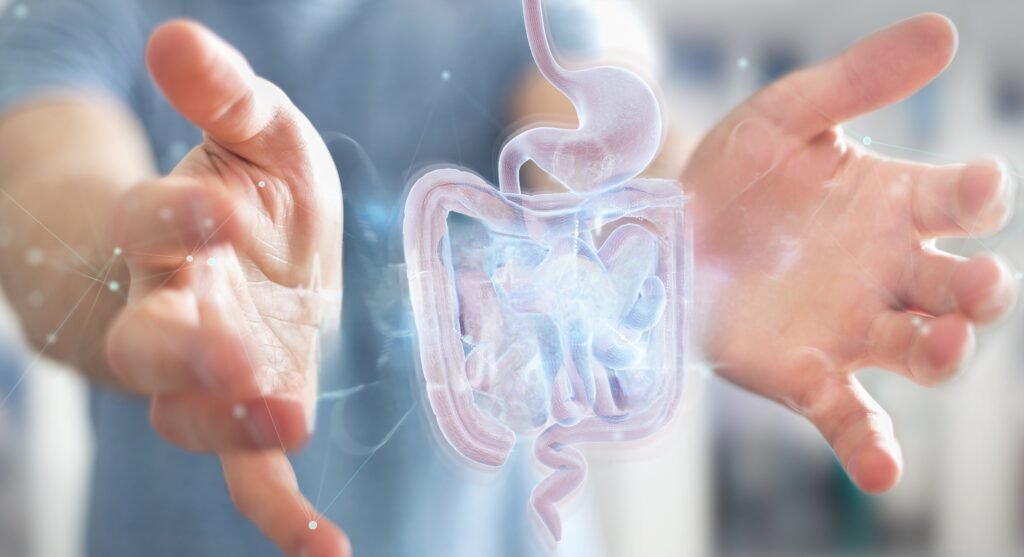Habits and Disorders
(Incl. IBS & OCD)
A habit is something you do often, like a routine. It can be good or bad but usually doesn’t cause big problems. A mental health disorder is a serious condition that affects how you think, feel, or act, and it can make life much harder.
Do see your GP before seeking hypnotherapy for these conditions, as you may need other help too.


Controlling Irritable Bowel Syndrome (IBS)
Irritable Bowel Syndrome (IBS) is a common digestive condition that can cause abdominal pain, bloating, gas, and changes in bowel habits like diarrhoea or constipation.
While not damaging, IBS can be uncomfortable, distressing, painful and persistent. Though the exact cause is unclear, stress, anxiety, and certain foods often trigger or worsen symptoms. Managing stress can play a key role in relief.
Hypnotherapy, specifically gut-directed hypnotherapy, helps by calming the brain-gut connection, reducing gut sensitivity, and easing symptoms. This approach is supported by strong clinical evidence, including research by gastroenterologist Professor Peter Whorwell.
In 1989, a study published in The Lancet found that after seven weeks of hypnotherapy and self-hypnosis practice, 20 out of 33 IBS patients experienced improvement, with 11 becoming nearly symptom-free.
I am an accredited HypnoIBS® Practitioner (AIM), experienced with using hypnotherapy for IBS.
Halting Eating Disorders - Anorexia/Bulimia
Anorexia involves severely restricting food due to an intense fear of gaining weight, even when already underweight. Bulimia typically involves cycles of binge eating followed by purging through vomiting or laxatives. Both are serious eating disorders that can affect both physical and mental health, and they usually require professional support.
Hypnotherapy can be a helpful part of recovery by working with the subconscious mind to shift negative thought patterns, challenge harmful beliefs about food, body image, and self-worth, and, where relevant, address deeper causes such as past trauma.
It’s important to note that hypnotherapy is usually used alongside medical care, nutritional support, and other psychological therapies. Always begin by speaking with your GP for your best plan.


Self-Harming
Self-harm is when someone intentionally hurts themselves as a way to cope with emotional pain, stress, or overwhelming feelings. It’s usually not about wanting to end life, but rather a way to find temporary relief or express inner distress.
This can take many forms, such as cutting, scratching, burning, hitting, pulling hair, or banging parts of the body. People may self-harm to deal with intense emotions like sadness, anger, or numbness, or when they feel unable to express what they’re going through. It’s a clear sign that someone is struggling and needs support.
Hypnotherapy can help by calming the mind, easing emotional overwhelm, and gently shifting the negative thoughts and beliefs that drive self-harming behaviours. It supports the development of healthier coping tools and helps rebuild a sense of self-worth and emotional control.
Obsessive–Compulsive Disorder (OCD)
OCD involves intrusive, unwanted thoughts (obsessions) and repetitive behaviours or rituals (compulsions) aimed at reducing anxiety. These behaviours can become distressing, time-consuming, and lead to avoiding situations that trigger them. Common examples include excessive handwashing, repeated checking, constant cleaning, arranging objects, or hoarding.
OCD doesn’t have a single cause. It may be linked to certain thought patterns, early life experiences that created a strong sense of responsibility, or stressful events that acted as triggers.
Hypnotherapy can support people with OCD by calming the mind and helping to identify and shift the thought patterns that fuel fear and compulsive behaviour. It promotes a greater sense of mental calm and control over obsessive thinking.

